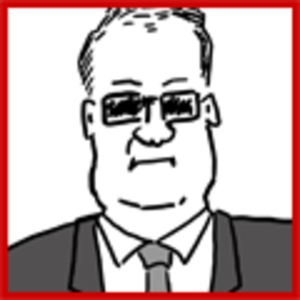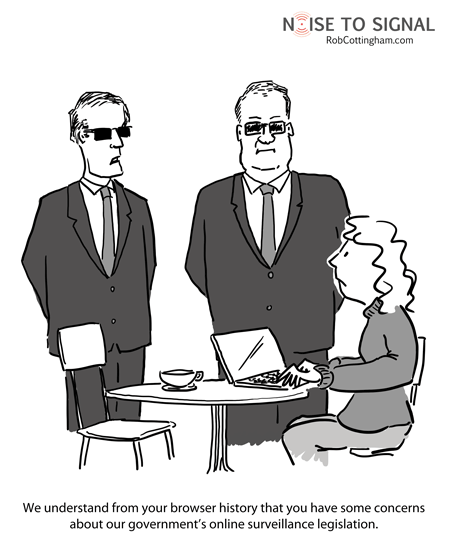It was just over a week ago that the Canadian government was preparing to table its new Internet surveillance legislation.

For the Conservatives, it was supposed to be a very good week. Tough posturing on crime has been a vote-winner for them in the past, and the only people who care about civil liberties are those herbal-tea-swilling vegan-sashimi-ordering bicycle-riding bleeding hearts* who’d never vote for them anyway – right?
And then Public Safety Minister Vic Toews went and said something that galvanized a community that went far beyond the herbal-tea-swilling crowd (or as I call them, “my people”). Replying to a questioner in the House of Commons (or “House of Representatives” to Americans, Australians and New Zealanders), he said:
We are proposing measures to bring our laws into the 21st century and to provide the police with the lawful tools that they need. He can either stand with us or with the child pornographers.
The government promptly rebranded the bill, hastily changing its name from “Lawful Access Act” to “Protecting Children from Internet Predators Act.” And all holy hell broke loose.
This being Canada, by “all holy hell” I mean there was a hashtag – #TellVicEverything. Twitter’s Canadian users bombarded Toews with the mundane details of their lives. One of the country’s leading voices for online freedom, Michael Geist, summed it up:
Yesterday’s Twitter-based #tellviceverything was the perfect illustration for how the Internet can fuel awareness and action at remarkable speed. Through thousands of tweets, Canadians used humour to send a strong message that the government has overstepped with Bill C-30 (my favourite remains @kevinharding’s Hey @ToewsVic, I lost an email from my work account yesterday. Can I get your copy?). Alongside the Twitter activity are dedicated websites, hundreds of blog postings from commentators on the left and right of the political spectrum, thousands of calls and letters to MPs, and nearly 100,000 signatures on the Stop Spying petition at Open Media.
By the end of the week, several of the country’s editorial pages that are normally pretty sympathetic to the Conservatives’ agenda had swung against them on this issue. A Twitter account appeared, revealing purported details of Toews’ personal life, and then went dark again. And the government was signalling it might be open to amending the bill, with at least one Conservative Member of Parliament saying it’s “too intrusive as it currently stands.”
This isn’t the first time our politicians have accused defenders of privacy and civil liberties of siding with child pornographers. But it’s the first time it’s backfired this spectacularly.
Maybe it’s because Canada’s net activists were spurred by the success of the fight against SOPA/PIPA in the United States (a fight many of us played some small role in waging). Maybe it’s because we’ve become a little more sensitive on online privacy issues, after a few high-profile clashes with social networking giants. Or maybe it’s just that we won’t tolerate being lumped in with terrorists, child pornographers, thieves and counterfeiters whenever it suits a politician’s or lobbyist’s communications strategy.
Whatever the reason, Canada now has a northern counterpart to the wired community’s newfound activism in the US. And #TellingVicEverything is only the beginning.
* Or as I call them, “my people”.
See the full Noise to Signal collection here!


















